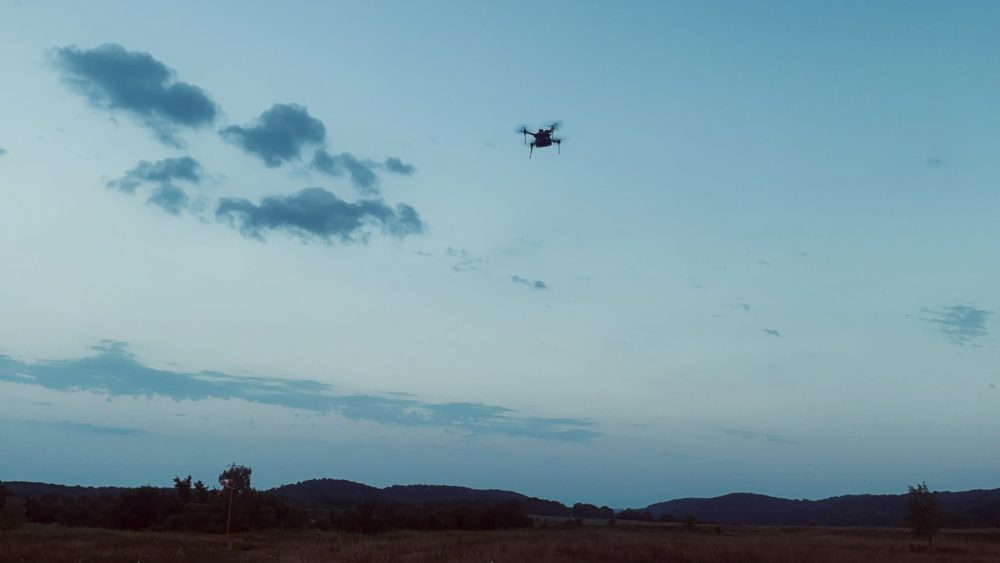In the beginning, when the founders of drone software developer KEF Robotics were still running a research and development group at Pittsburgh’s Astrobotic, the goal wasn’t to end up with the US Army as their primary customer. It was just to start their own company and have more autonomy — and it just turned out that drones were the fastest way to get their work out into the world.
Now, what started as a project consisting of only three technologists now has a team of 12 that mainly serves the federal government. The company specializes in GPS-denied environments and software that allows drones to fly without human pilots.
“We want to make robotics easier to implement to make it faster to move from the lab to the field, or to a commercial product,” Fraser Kitchell, the CEO and one of three cofounders, told Technical.ly during a recent tour of the company’s HQ. (Kitchell is the “F” in KEF, alongside Kerry Snyder and Eric Amoroso.) “And drones are almost a means for us to be able to do that.”
Just a few years after its December 2018 founding in Larimer, a neighborhood known for having more warehouses than people, the startup’s employees pass their time developing software and testing drones. Kitchell said someday the company might outgrow its warehouse offices, but should expansion become necessary, KEF is likely to stay in Pittsburgh due to the low cost of doing business. For the time being, when a larger space is needed to fly drones, the engineering team drives out to Pittsburgh Northeast Airport, a Carnegie Mellon University-owned airport they pay to use.

What made the Department of Defense its biggest customer was a question of efficiency, Kitchell said: In the commercial airspace, there’s a lengthy process to qualify the kinds of systems KEF produces, and because it hasn’t followed the traditional venture capital investment model, waiting for their drones to get approved for use would’ve meant less of a possibility of remaining funded. The federal government, however, despite its reputation for being fraught with bureaucracy, offered a path with less red tape, so the company felt that military customers meant its drones wouldn’t be waiting for approval for years and years.
“As a business that’s not raising money from investors but funding ourselves as we go, we can’t really lean forward into those future uses,” Kitchell said. “We have to focus on customers that need our capabilities now. So the DoD is just a great partner in that they need these capabilities now. And they can have research funding for us to develop them as we get closer to providing that.”

The company has earned national kudos in its short lifetime. In 2019, for instance, KEF Robotics was a finalist in Lockheed Martin’s AlphaPilot drone competition. Throughout the year the team travels to places like Texas, Wyoming and Florida to conduct demonstrations showcasing their technology. And Kitchell reports that the KEF has seen its revenue increase 150% this year.

In August, the company announced that Army Applications Lab awarded it $1.5 million to develop algorithms to fly in urban environments at high speeds. The purpose is to create drones that can avoid obstacles such as power lines and billboards during the day and at night.
“The first commercial use will be inspection of warehouses that are suspected of housing chemical, nuclear [or] biological weapons,” Kitchell said. “So instead of sending a person in there, we want to be able to inspect it from the outside and play with sensors.”
Looking forward, KEF plans to grow its staff by 40% over the next four months, including roboticists and engineers, and reports it’ll be taking on its first two commercial customers in January 2023. It’s come a long way from when it started, but whatever the future holds, Kitchell says the future of the company and the talent they hope to hire will remain based in Pittsburgh.







